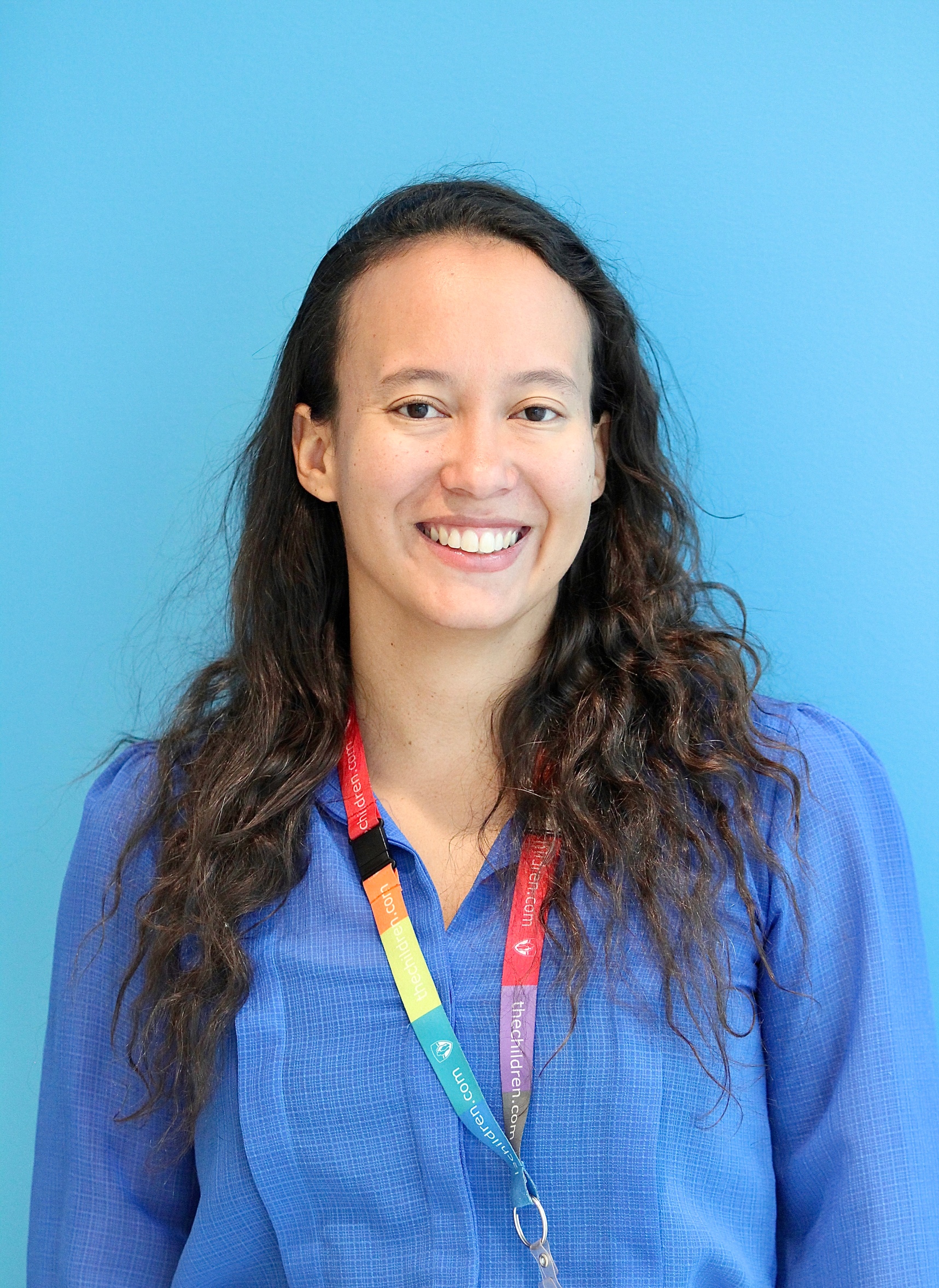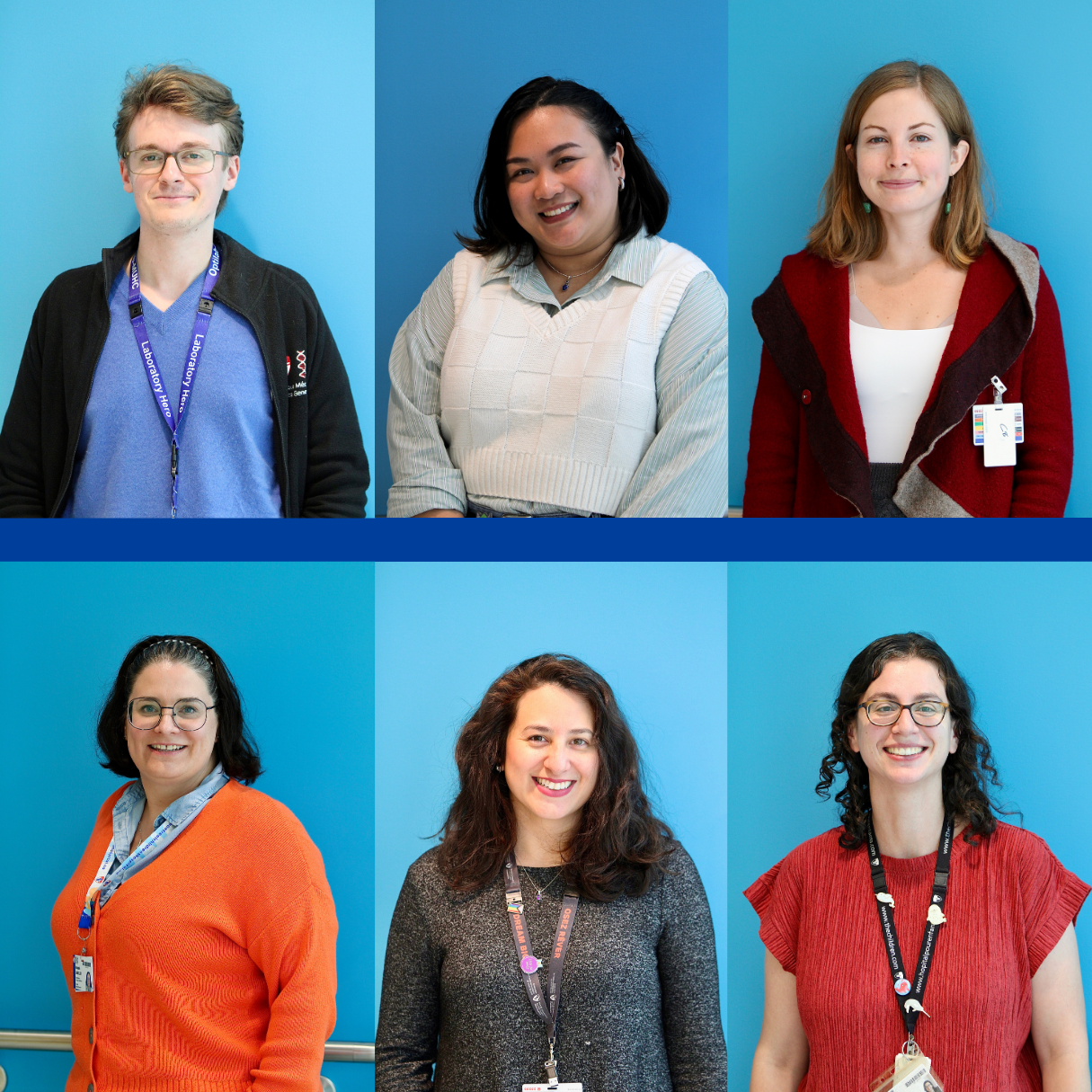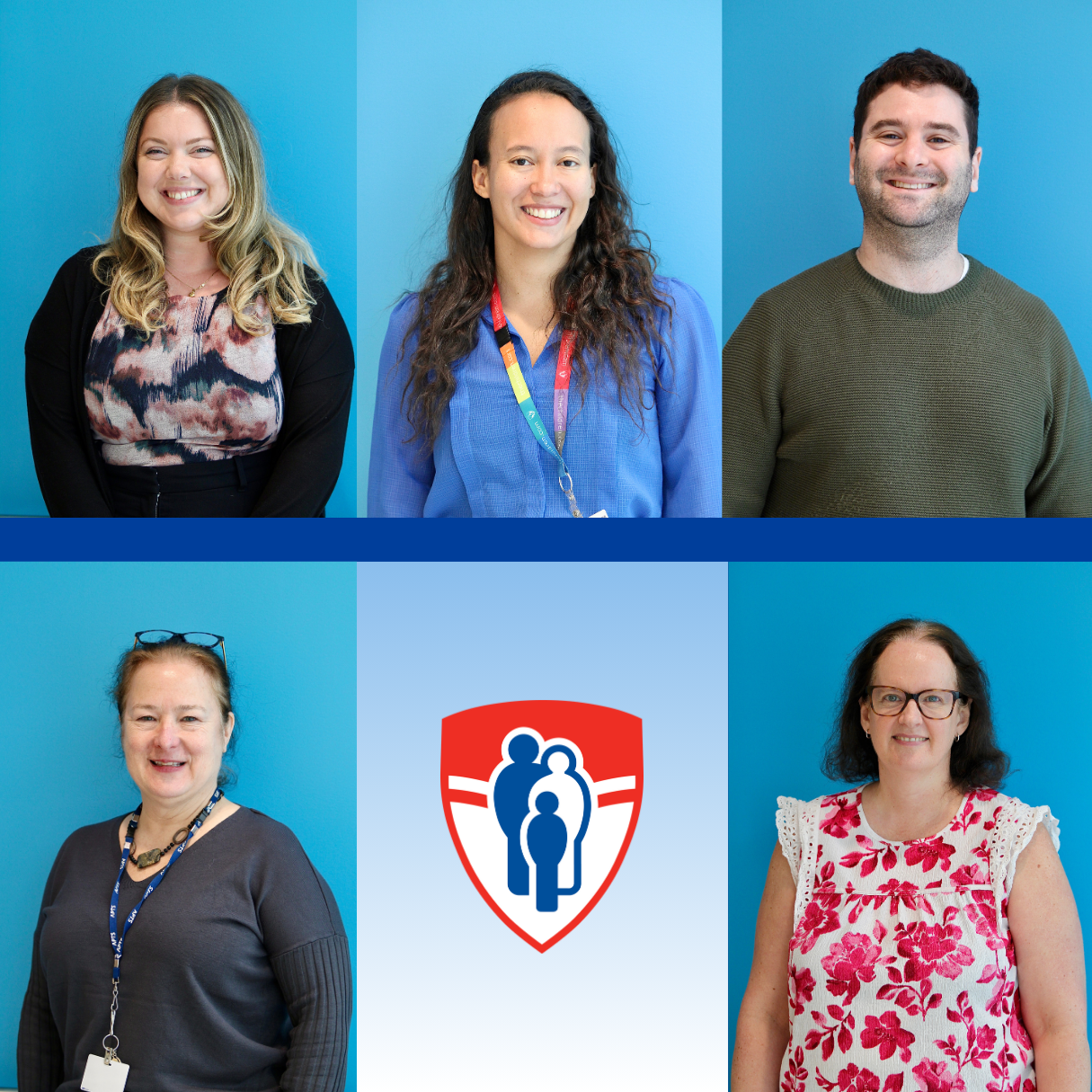The unique role of Genetic Counsellors
What does a Genetic Counsellor do? Today is Genetic Counsellor Awareness Day (Nov 14, 2024) and we want to recognise the unique work performed by our amazing team of genetic counsellors at the MUHC.
Genetic counsellors have specialised education in both genetics and counselling. In Quebec, they must hold a Master’s degree in genetic counselling. Their prior education normally consists of a Bachelor’s degree in biochemistry, biology, microbiology, or biomedical sciences. In school, they study advanced human genetics, human development, genetic epidemiology, as well as psychology and counselling. Most of their training is performed in a medical setting through clinical rotations. Five schools in Canada offer genetic counselling training programs, including two universities in Quebec.
Genetic counsellors give personalised guidance based on family history and overall health. A genetic counsellor may discuss the likelihood of having a genetic condition, the chance of passing a condition to a biological child, as well as test options. The goal is to determine whether a genetic test is necessary for a person, whether it is desired, and if so, to pinpoint the best screening test that will lead to optimal treatment. Most of the time, genetic tests are done using a saliva sample or a blood test.
With a genetic counsellor, a person can discuss the emotional impact of having a family member with a health issue. Learning about family medical history can be overwhelming, but genetic counsellors are trained to help with these feelings. They schedule hour-long appointments to ensure enough time for meaningful discussions. Laurence Baret, genetic counsellor at the MUHC and the Associate Director of the Master in Genetic Counselling Program at McGill University, explains:
“Genetic counsellors follow strict ethical guidelines to respect each person’s choice to either learn or not learn about hereditary risks. The goal is not to pressure anyone into testing, but to empower patients through counselling sessions as well as education.”

At the MUHC, genetic counsellors work in all these areas: ophthalmology, cardiology, neurology, oncology, reproduction and fertility, prenatal, as well as in laboratories and in research. They provide key information to the multidisciplinary team, and they also act as liaison agents for patients who are seen by more than one specialist.
The field is seeing growth both nationally and internationally. Here in Canada, the number of genetic counsellors has doubled in recent years. There are approximately 600 genetic counsellors in the country and 60 are here in Quebec. “All of the genetic counsellors I’ve met are very nice people, and they love being present for momentous decisions in the lives of their patients,” describes Laurence. “My colleagues and I enjoy doing social activities together and we feel that we are a close-knit group. It’s an extremely rewarding career!”
Learn more about the profession: Quebec Association of Genetic Counsellors |


